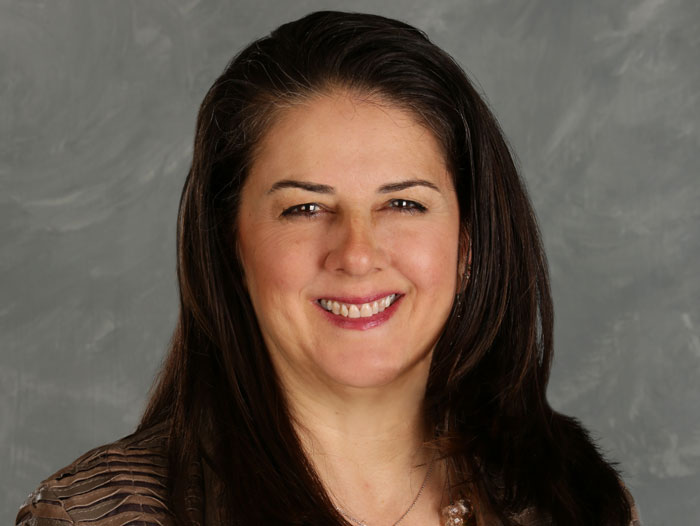USDA, Innovation Center Sign MOU to Continue Dairy Sustainability Commitment
June 22, 2022 | 4 min to read

ROSEMONT, Ill. – The United States Department of Agriculture (USDA) and the Innovation Center for U.S. Dairy have signed a Memorandum of Understanding (MOU) to continue working toward the dairy industry’s 2050 environmental stewardship goals while addressing growing consumer demand for food that is produced in a way that’s good for the planet.
The MOU, which extends and builds upon a pact originally signed in 2009, will leverage USDA programs to encourage the adoption of economically viable technologies and practices that improve sustainability and assist in addressing environmental needs of U.S. dairy farmers. Efforts will accelerate and streamline programs focused on resource recovery, sustainability improvement, soil health management and greenhouse gas reduction (GHG).
“In renewing this agreement with the Innovation Center for U.S Dairy, USDA is recommitting to our vital work with dairy farmers to reduce methane emissions and improve the sustainability of their operations,” said Jewel Bronaugh, who serves as deputy secretary of agriculture. “We’ve seen tremendous interest in the production of climate-smart commodities and the dairy industry is on the leading edge of that effort. Today’s MOU will help build on and advance the industry’s important leadership in this arena.”
The Innovation Center was founded by dairy farmers through their dairy checkoff in 2008 as a forum that convenes stakeholders across the value chain to align on shared social responsibility priorities including the environment, nutrition and health, animal care, food safety and community contributions. The Innovation Center announced industrywide 2050 environmental stewardship goals, which include:
- Achieving GHG neutrality.
- Optimizing water use while maximizing recycling.
- Improving water quality by optimizing utilization of manure and nutrients.
The Innovation Center will work with USDA to enhance communications and outreach to farmers regarding participation in its programs. The organizations will offer support for practices, projects and programs that seek to further reduce GHG emissions.
“This collective work will move us closer to realizing our goals and our vision of dairy as an environmental solution,” said Barbara O’Brien, who serves as president and CEO of the Innovation Center and Dairy Management Inc., which manages the national dairy checkoff. “Most important, we’ll be able to provide farmers with more support and tools so they can continue building on their generations-long commitment to being good stewards of their natural resources.”
The MOU will leverage USDA’s expertise in science and conservation to collaborate with the Innovation Center in working with farmers to create sources of income tied to climate-smart practices and emerging market opportunities.
Specific USDA programs include Natural Resources Conservation Service (NRCS) and Rural Development (RD) programs for resource recovery technologies and/or feed management practices. USDA also will consider increased research through its research agencies and across the Department to identify cost-effective enteric methane mitigation practices that reduce emissions and facilitate the adoption of technologies that integrate manure and livestock waste management into soil health management systems.
The Innovation Center will look to develop partnerships that bring additional financial investment to enhance dairies’ participation in USDA conservation programs.
Efforts could include participating in USDA initiatives to share U.S. dairy’s sustainability story to broader audiences, including the Global Research Alliance on Agricultural Greenhouse Gases and America’s Conservation Ag Movement. Other possibilities include co-hosting a nationwide workshop for researchers to disseminate information and coordinate research efforts that foster dairy sustainability.
Previous and current USDA and Innovation Center collaborations have resulted in research, resources and a variety of programs that have advanced dairy sustainability, including on-farm anaerobic digesters, food waste reduction and the development of nutrient recovery technologies through NRCS and the checkoff-created Newtrient company.
Additionally, the Farm Smart Project led to the Farmers Assuring Responsible Management (FARM) Environmental Stewardship module, a voluntary tool that empowers farmers to identify opportunities for sustainability improvements on their farm. About 78 percent of the U.S. milk supply participates in FARM.
“The renewal of our MOU again clearly demonstrates how the commitment to a sustainable dairy industry doesn’t fall on the shoulders of farmers alone,” said Pennsylvania dairy farmer Marilyn Hershey, who serves as chair of DMI. “Having USDA’s expertise and resources at our side is an invaluable benefit to dairy farmers across the country.”
To learn more about U.S. dairy’s environmental commitment, visit www.usdairy.com/sustainability
###
The Innovation Center for U.S. Dairy® is a forum that brings together the dairy community to address the changing needs and expectations of consumers through a framework of shared best practices and accountability. Initiated in 2008 by dairy farmers through the dairy checkoff, we collaborate on efforts that are important both to us and our valued customers in areas like animal care, food safety, nutrition and health, the environment and community contributions. Through the Innovation Center, the U.S. dairy community demonstrates its commitment to continuous improvement from farm to table, striving to ensure a socially responsible and economically viable dairy community.
